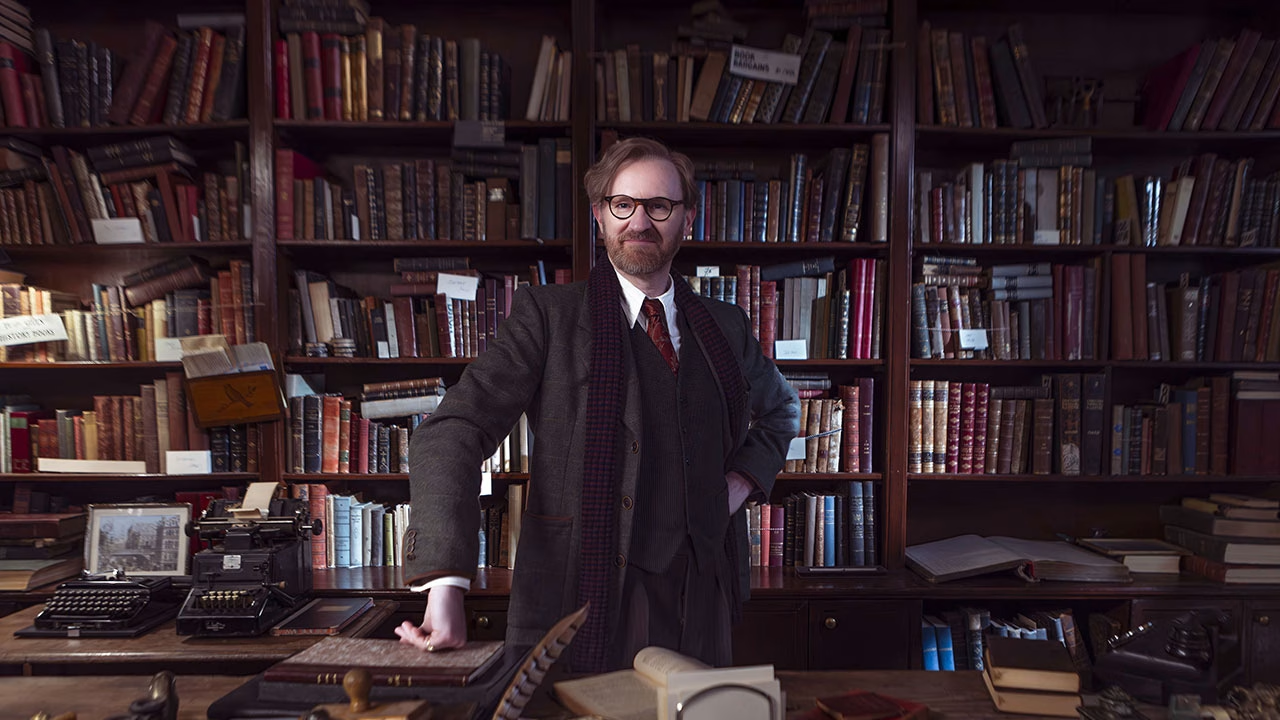You might think you’ve explored all the cozy crime shows out there — you’ve enjoyed Richard Osman’s works, checked out Ludwig, and even watched Timothy Spall in Death Valley. Of course, classics like Father Brown and Agatha Raisin are always ready to lift your spirits on a down day. You’re set, right?
But just like with a box of chocolates (let’s be honest, there’s always room for one more), there’s a fresh treat waiting for you: Bookish. This six-part detective drama, created by Mark Gatiss and written by Matthew Sweet, stars Gatiss as Gabriel Book, a secondhand bookseller navigating postwar London. Armed with a mysterious “letter from Churchill” linked to his equally enigmatic wartime service, Book finds himself drawn into any intriguing police investigation that crosses his path—imagine him as a semi-Sherlock Holmes.
In the debut episodes, titled “Slightly Foxed” (a clever play on words), the plot revolves around an unearthing of a plague pit at a bomb site, a local chemist’s peculiar suicide by prussic acid, and an array of clues that continually surprise. One clue is so blatant that it seems deceptive, adding additional layers of complexity. The investigation involves various potential suspects, from the chemist’s estranged daughter and her shady boyfriend to an erstwhile ARP warden and even a Dickensian charwoman named Mrs. Dredge.
The show balances traditional themes (whistleblowing police, meat as a luxury, the popularity of powdered eggs) with intriguing nods to the niche world of Georgette Heyer fandom, while also touching on the harder realities of life in post-war England—like orphaned children and the societal shifts following the devastation of war. Bookish presents an engaging story infused with a sense of grief and nostalgia.
Besides the immediate mystery, each episode gradually reveals more about Book’s life. Though he and his wife Trottie (played by Polly Walker) share a deep love, they sleep apart. They’ve taken in a young man named Jack (Connor Finch), an orphan recently released from prison for a minor crime. As they appear to care for him, the story hints at motives that may be less altruistic. Moreover, there’s a tantalizing thread involving Trottie’s potential infatuation with younger men, which could usher in a whole new sub-genre of cozy crime.
The show also subtly explores Book’s experiences as a closeted gay man—a poignant addition that permeates the narrative with emotional depth and enriches both his character and Gatiss’s performance, which is typically more reserved.
While there are a few moments that stretch credibility—like a robbery involving a jade chess piece—the overall fabric of Bookish offers a captivating blend of meticulous storytelling and rich pacing. The series has been commissioned for a second run before its first even premiered, which speaks volumes about its potential. It finds just the right balance to be fresh yet comforting, making each episode a delightful escape.
Bookish is now available on U&Alibi in the UK and HBO Max in Australia, ensuring that cozy crime fans have plenty to enjoy.













